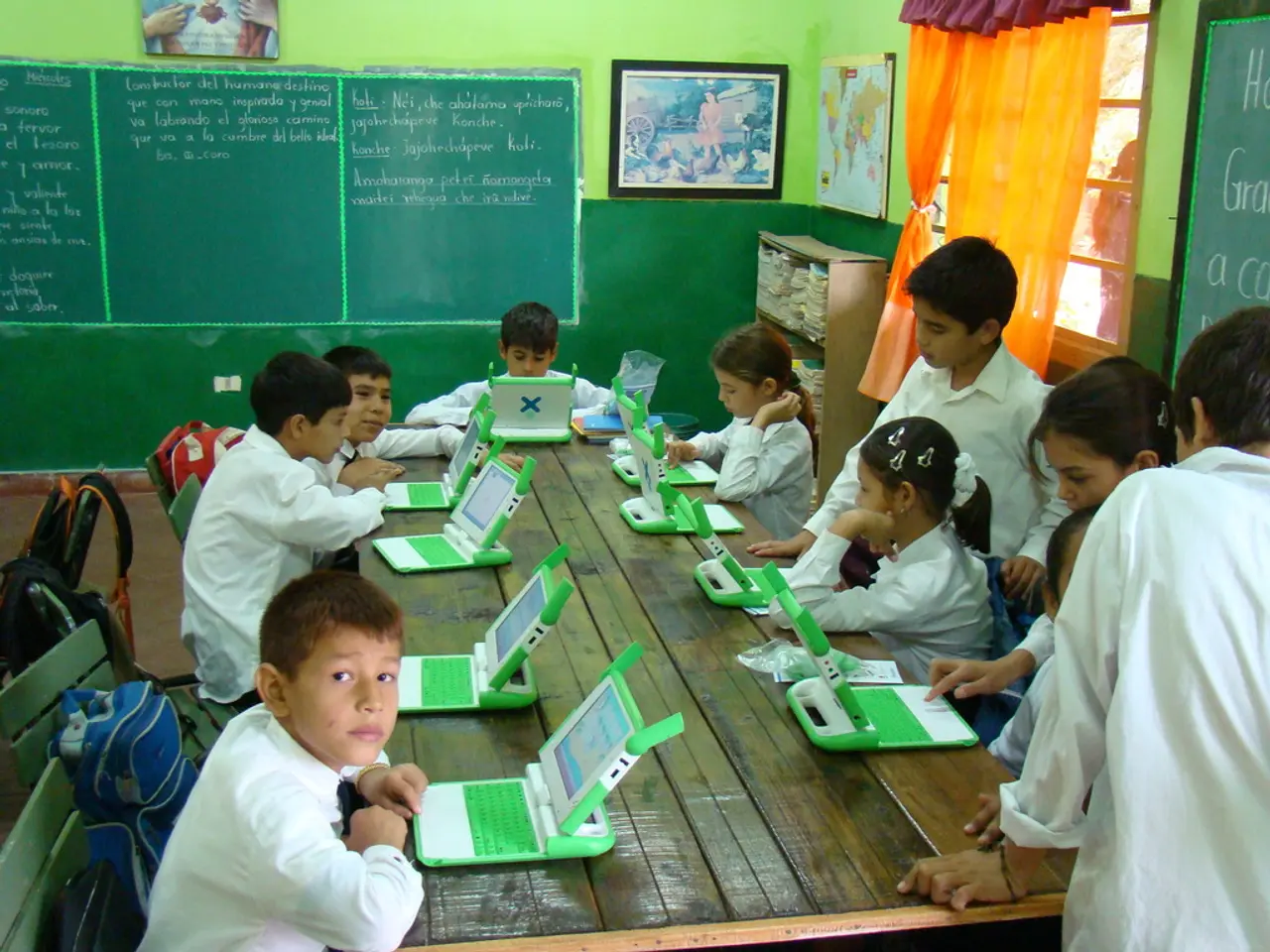Tech Platforms Fuel Job Growth for Young Africans
In the rapidly growing sectors of fintech, e-commerce, healthtech, and edtech, the demand for roles such as software developers, data analysts, UX designers, and digital marketing experts is soaring. Recognising this need, tech platforms are stepping up to bridge the digital skills gap across Africa.
These platforms are transforming the landscape, offering targeted training for real-world jobs. They provide opportunities for candidates from rural areas to compete for roles in urban centres, thanks to digital connectivity. Online internships, cost-effective and accessible from anywhere with a stable internet connection, are a testament to this. With tools for asynchronous communication and mobile-friendly designs, these platforms make it possible for candidates from rural or underserved areas to intern remotely.
Tech platforms in Africa offer flexible schedules, affordable or free training, and accessibility features to a broader range of users. In Kenya, for instance, the Ajira Digital Program offers free online modules in soft skills, entrepreneurship, and digital work readiness. Similarly, coding bootcamps like Vodacom’s Code Like a Girl train young people in coding and robotics, helping to close industry skill gaps.
The platforms also leverage AI-powered career tools and job matching algorithms. Initiatives such as Microsoft’s AI platform in South Africa and the Harambe Youth Employment Accelerator use AI and cloud infrastructure to connect youth with available jobs, even considering informal experience and non-traditional qualifications for better matching.
Moreover, these platforms facilitate access to remote and gig work platforms, enabling young Africans to monetize their newly acquired digital skills globally. This approach is crucial to overcome local labor market constraints while expanding the scope of available work.
The platforms focus on high-growth, tech-enabled sectors like fintech, e-commerce, healthtech, and edtech, equipping youth with skills tailored to these industries. By doing so, they enhance employability and entrepreneurship opportunities aligned with economic trends.
Key enablers include robust partnerships between governments, private sector players, NGOs, and international donors. Investments in infrastructure to improve internet access and policies that support digital education and labor market integration are also crucial. Despite challenges such as poor infrastructure, limited digital access, and skill mismatches, these platforms can be scaled to mitigate these issues.
In summary, tech platforms serve as catalysts by delivering scalable, market-relevant digital training, leveraging AI for personalized job matching, and creating pathways for remote and gig work. They help eliminate location-based barriers, providing practical learning opportunities, widening access to internships, and offering flexible options to job seekers. These platforms are indeed significant catalysts in addressing youth unemployment in Africa.
- These tech platforms in Africa are revolutionizing education-and-self-development and lifestyle by providing accessible and affordable training for digital jobs in sectors like fintech, e-commerce, healthtech, and edtech.
- The tech platforms also facilitate general-news and job opportunities by using AI-powered career tools and job matching algorithms, enabling young Africans to secure roles that match their skills and qualifications, both locally and globally.




